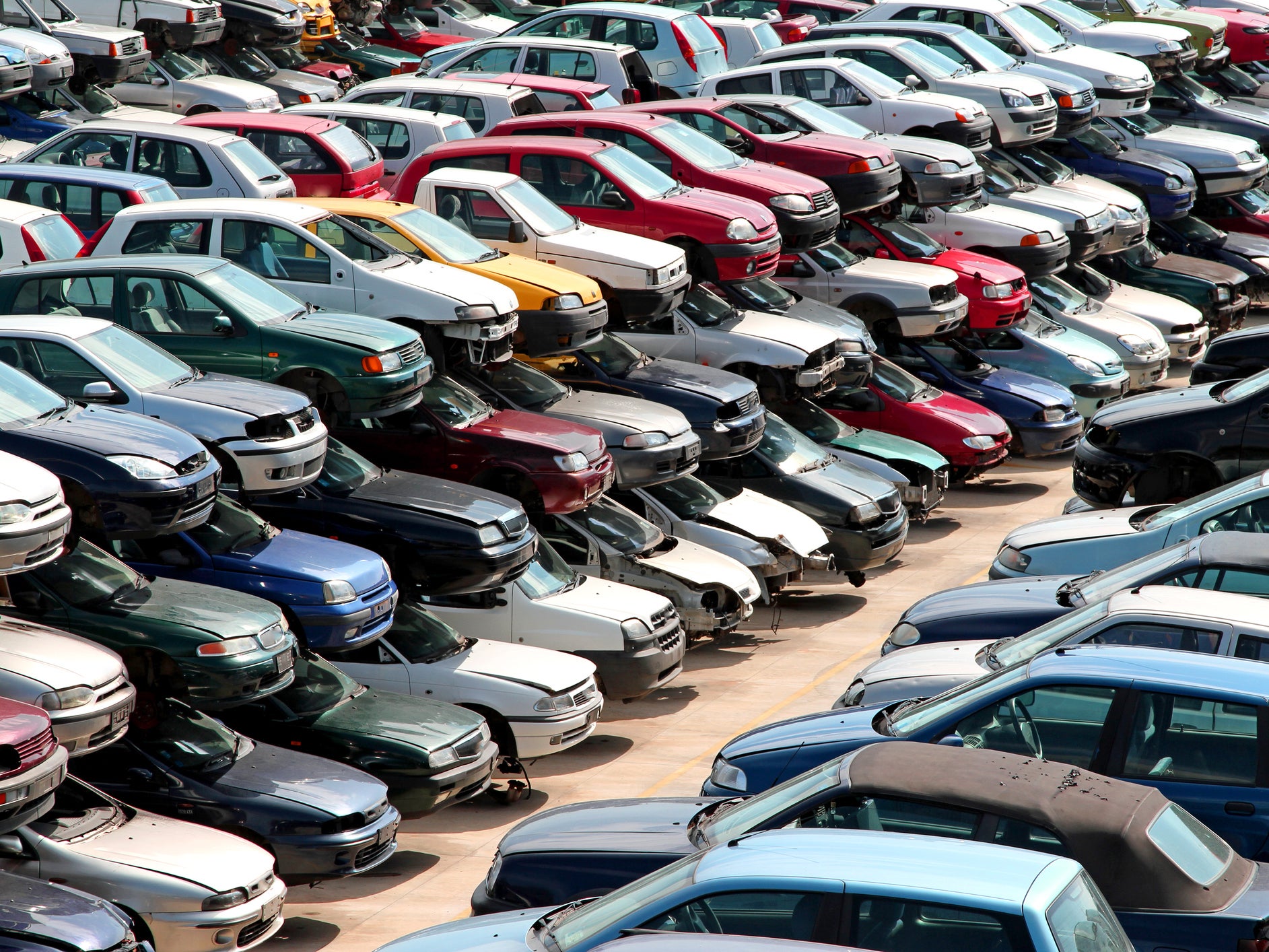Government’s reported scrappage scheme for petrol and diesel cars welcomed by motoring and environmental groups
Incentivising uptake of new electric vehicles would boost car industry which has seen demand collapse due to Covid-19

The UK is considering launching a new car scrappage scheme in which drivers could be given up to £6,000 to give up their petrol or diesel vehicles for an electric model, it has been reported.
Motoring groups and environmental campaigners have welcomed the idea.
The AA described the plan, first reported in the Daily Telegraph, as “fantastic” while Greenpeace said it would be “moving in the right direction”.
An existing scheme to encourage the take-up of electric vehicles was scaled back by the government in March this year, when the maximum Plug-In Car Grant was reduced by £500 to £3,000.
Details about the new plan have emerged after car manufacturers reported a collapse in demand for new vehicles due to the coronavirus crisis, which has seen sales down 90 per cent in May compared to the same month last year.
According to the Telegraph Boris Johnson may use a speech on the economy on 6 July to set out the details of the petrol and diesel scrappage scheme.
A spokesperson for the government said it was “considering the long-term future of incentives for zero-emission vehicles”.
AA president Edmund King called on drivers to “take up the deal” if it goes ahead, as it would “help both car manufacturers and air quality”.
He also called for more electric vehicle charging points to be made available in the UK to “convince drivers that they can always get home” and for the UK to build large factories to develop the batteries fitted in electric cars.
Over the weekend it was reported that Tesla chief executive Elon Musk had visited a large site near Bristol with a view to building a factory to expand his firm's production of electric cars and batteries.
The RAC also welcomed the proposed scrappage scheme, with the organisation’s head of roads policy Nicholas Lyes suggesting the financial encouragement “might be the game-changing boost the automotive sector needs”.
He said: “Drivers’ concerns about emissions are becoming ever stronger and interest in zero-emission vehicles is increasing.
“But many continue to say that the upfront cost of electric vehicles compared to those of similarly sized conventional vehicles is a barrier to them switching so any sort of scheme which tackles this would be very welcome.”
Rosie Rogers, of Greenpeace UK, said: “The government would be moving in the right direction by favouring electric vehicles over polluting diesel and petrol. But they need to go further to really see clean transport drive the green recovery.
“Any scrappage scheme should also give people the option to use public transport instead of a new vehicle, or to purchase the likes of e-bikes as an alternative to their car.”
A similar previous initiative launched in 2009 saw motorists handed up to £2,000 if they traded in old cars for new models. Half the money came from the government, with the other half from manufacturers.
Figures published by the Society of Motor Manufacturers and Traders show pure battery-electric cars held just a 1.6 per cent share of the new car market last year.
Grant Shapps, the transport secretary, has said the ban on sales of new petrol, diesel and hybrid cars and vans could be brought forward from 2040 to as early as 2032 in a bid to meet carbon reduction targets.
The proposal was greeted with criticism from the automotive industry, which claimed it would take more than industry investment to achieve such a timetable.
Additional reporting by Press Association
Join our commenting forum
Join thought-provoking conversations, follow other Independent readers and see their replies
0Comments